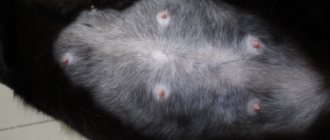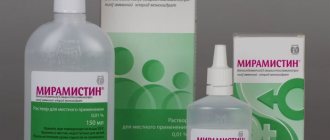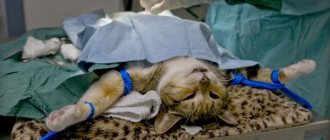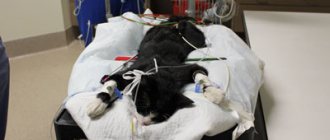11240Administration
Sterilization is considered an absolutely safe veterinary operation, which has been successfully performed all over the world for many years, but whatever it is, it is an intervention in the nature of the animal and it is always difficult to predict how it will affect the cat. Often owners are faced with the problem that the cat has become aggressive after sterilization.
An animal that has been docile and gentle for many years suddenly suddenly shows attacks of aggressiveness, rushes and hisses at its owners, and sometimes can even scratch painfully.
Benefits of neutering in cats
Neutering cats has become a common practice and has long been common practice in veterinary practice. After all, neutering animals has many advantages: you avoid unwanted kittens, first of all, you reduce the risk of accidents with the movement of males even outdoors, heat stress disappears for females, and there are fewer fights in the neighborhood due to competition for territory.
A “pleasant side effect” of castration is that any problems caused by abnormal behavior related to sexuality disappear. In fact, after neutering, the irritating mark odor, meowing or sexual calling, and dominant or aggressive behavior towards potential sexual competitors usually disappear. After sterilization, the cat and her male often become more affectionate and pleasant. In short: Neutered cats seem to be happier overall than their still sexually active cats.
© shutterstock
Does neutering harm cats?
Sterilization of animals in our time has become an absolutely routine operation, which is provided by almost all veterinary clinics. But it's still an operation. So there are always minimal risks for the animal. Another thing is that they are kept to a minimum. With proper preparation of the animal and a good clinic, there is nothing to fear. There are many positive aspects to sterilizing cats:
- The first one is the most obvious. Prevention of unwanted pregnancy and uncontrolled reproduction of animals. This is especially true for stray cats and animals that have free access to the street.
- Life expectancy increases. It has long been proven that sterilized cats have a better quality of life. In addition, they live much longer than their non-sterilized counterparts. Empty heats, constant fluctuations in hormonal levels and nervous tension naturally have a negative impact on the animal’s well-being. The risk of developing cancer in older age is also significantly reduced.
- The manifestation of aggression is reduced. Especially when several animals live together. Competition and rivalry for territory disappears. Sterilized animals have a much calmer and more playful character and are more likely to show friendliness.
- They stop marking their territory. With the loss of sexual instinct, there is no need to leave marks throughout the house and in the yard, or to shit in inappropriate places. This is perhaps the first and main measure to combat the problem of marks and unwanted odors in the house.
- The pet's appearance improves. Many owners note that after the operation, the animal’s coat takes on a more attractive appearance, begins to shine, and at the same time, excess fat or greasiness disappears.
Can a cat's behavior change after sterilization?
However, what if these benefits do not occur after castration? Or, even worse, what if your cat is more aggressive after surgery than before? The risk of a cat's personality changing for the worse after sterilization is very low. Cases of animals becoming more nervous, aggressive or fearful after castration surgery are virtually unknown to most veterinarians.
However, there are concerned cat owners online who experience this fear and discuss it on forums. Why? And how does your cat get back to “who she once was” after being spayed? In the following paragraphs we will try to answer these questions.
What affects the cat's condition after surgery?
A week is an average indicator, and you should not rely only on it. Some pets have a hard time with any type of surgery, and some begin to run already on the second day.
Among the signs affecting the cat's condition are:
- Age. The older the animal, the more difficult it is for it to withstand the intervention of a surgeon;
- Type of procedure. For example, if the surgery is an emergency, recovery may take longer;
- Type of anesthesia. Some medications may make the kitten's condition worse.
Thus, when thinking about the question of how long a cat is sick after sterilization, it is worth taking into account the factors listed above and drawing a conclusion.
Possible causes of aggression
- Castration is an invasive intervention
The fact that castration of cats is now performed in almost all veterinary offices and that most experts recommend this practice with sound arguments should not make us forget the fact that castration was and remains a procedure, an invasive surgery. Unlike sterilization, in which the egg or vas deferens is only closed or cut, castration involves the complete removal of the gonads. This means that in women, the ovaries are surgically removed, and in men, both testicles are removed.
As with any surgery, even after castration the subject may experience pain due to injury. Especially in women, there may be problems with suturing the wound and its healing: in fact, to remove both ovaries, it is necessary to make a 3-5 cm long incision in the abdominal cavity. In cats, the scrotal wound usually closes on its own quite quickly, but the wound in the genitals may still cause pain. Usually the painful symptoms disappear a few days after surgery, but a cat that has just had surgery may not understand pain and therefore often reacts aggressively.
- Metabolism and hormonal levels change
After neutering, your cat needs to cope not only with general anesthesia and pain due to the wound, but also with important hormonal changes. In some cats, it may take several days to several weeks for hormonal balance to be restored. During castration, the removal of the testicles or ovaries removes sites of sex hormone production that previously had a major influence on behavior that is clearly related to hormones.
Ultimately this means that in the vast majority of cases the cat will be calmer because she is no longer driven by sexual cycles, but it may take some time for this positive change to manifest itself. Therefore, after surgery, the cat may temporarily appear more tense than before.
- Suddenly your partner smells different
Often, aggression after castration surgery occurs if the cat cohabits with another cat. In fact, in many cases this aggressive attitude continues, particularly towards other pets, where a gentle and affectionate attitude towards people in the family is maintained. Experts explain this by saying that the operated animal emits a different smell.
- The collar is annoying
Apart from what has been said about the change in the smell of a cat that has been operated on, which we humans cannot perceive, there are also very obvious reasons that may be the cause of unusually aggressive behavior. To prevent the animal from licking the wound after surgery, many veterinarians recommend applying a bandage to the neck of the operated cat. While some cats are stoic about having that pesky “plastic bowl” around their head, others are very concerned.
Decreased vision greatly irritates sensitive cats: aggressive behavior, as in most cases, is a consequence of feelings of insecurity and fear. Frightened animals often don't know what to do other than pull out their claws and attack with them.
If you suspect aggression or insecurity is caused by an Elizabethan collar, you can also have your cat wear a surgical leotard, which also prevents the animal from reaching the wound with its tongue without stressing it.
© shutterstock
Sterilization solved the problem of aggression and saved the cat’s life
For a long time I did not dare to sterilize the cat, I still felt sorry that the operation was abdominal, a serious intervention. In fact, it will lead to premature aging of the cat, turning off the function of the ovaries.
My cat has already turned five years old, until this time we got by with “Sex Barrier” drops. Partially solved the problem, but she had a natural character; during estrus, aggression always appeared, but it was not clearly expressed.
That is, there was no particular concern, it only happened sometimes, literally a few times throughout the entire period of my life, that there was an inadequate reaction to guests, less often to me.
Suddenly she could attack, bite, scratch. I had to isolate her in the bath for half an hour, she calmed down. I saved myself with drops, they helped us during difficult periods of estrus. I licked them myself from the bottle, apparently I liked the olive oil composition.
But at a certain point, not so long ago, something unpredictable happened to my cat. I was in heat, she bit my hand a little, she didn’t like that her neighbor came. The cat does not like strangers at all; she is used to living alone in her own territory.
Before sterilization
I missed the moment when my heat started, I didn’t give a drop on time. As a result, the hormones grew, after a couple of days, I unexpectedly dropped the chair, the roar scared her, she pounced on my trail and tore her leg. Then she began to hiss, not letting me pass, any movement of mine caused her aggression.
Within a week I turned into a wild beast, it became impossible for me to sleep or be at home. Constantly shutting yourself out from her. She howled and hissed and attacked as soon as I opened the doors to the room.
Relatives and friends recommended putting her to sleep, saying that the damaged psyche cannot be restored, the cat is dangerous, but I felt sorry for the cat to do this, it is not to blame for such madness of nature that happened to it.
For reference: according to the law of humanity in our country, pets are euthanized strictly according to indications, only seriously ill and old ones with the consent of the owner.
I called a private veterinary clinic and explained the situation. It was problematic for me to bring a “wild animal” for inspection, but I snatched the moment and put it in the carrier, because when I entered the apartment from work, for literally 3-5 minutes the cat fawned over me, as usual, that it was bored in my absence, and then turned into aggressive, sharply changed her behavior.
Of course, the doctor did not dare to examine her; it was dangerous to take her out of the carrier. So we just talked, told everything, took 300 rubles, that is, half the price of examining the cat.
We decided that it was necessary to sterilize, the only correct tactic, if it does not help, only then will there be a question of euthanizing, as a socially dangerous animal.
I would like to note that during this week of aggression, conservative methods were used, I bought all sorts of sedatives in the store, added them to the diet, there was no other way to give it or approach her, all to no avail.
She did not feed or give her anything to drink in the morning of the day when sterilization was scheduled. At the veterinary clinic, they first weighed her directly in the carrier, 5.5 kg, and said that she was a well-fed cat. The doctors did not take her out of the carrier, but, wearing protective gloves, first injected her with a sleeping pill into her thigh, removing only her back paw.
They waited 20 minutes for her to fall asleep, only then they calmly took her out and carried her to the operating room. I waited for about an hour. Then they brought the sleeping woman in a diaper, already in a carrier. They gave me anthelmintic and anti-flea medications, a sedative collar, trimmed my claws, that is, I took all preventive measures at the same time.
The cost of the operation is 2,700 rubles, the stitch is internal, there is no need to remove the threads, no pom-poms were applied. They seriously loaded the cat with sleeping pills so that she would not wake up on the road.
After sterilization surgery
They warned that after anesthesia it would take a day to come out, it would be inadequate. I locked her in the room, put out a potty and food, and a bowl to drink. She spent the first day calmly, the silence, the aggression passed, she felt comfortable with herself. The only thing was that I dropped the pot on its side; there were no other reactions.
At first she hid under the bathtub, but periodically came out. She behaved calmly. Life has improved. The cat became affectionate, the hormones calmed down. There were no complications during the operation or early postoperative period. But the cat had no bowel movement for 10 days, drank water, ate nothing, and had no appetite for a long time. I’ll tell you how to treat constipation in a cat after sterilization in the next review.
There was no longer any need to euthanize the “wild animal”, thanks to the doctors for choosing the right tactics, carrying out sterilization without complications, and the cat returned to a normal lifestyle. For a month and a half now there has been peace and tranquility in the house.
One month after surgery
I will now recommend the sterilization procedure.
What drugs are used for chemical sterilization of cats?
Hormonal agents intended for chemical sterilization are produced in the form of drops, tablets and injections.
In veterinary practice they use:
- Covenant.
- Depot-promo.
- Depo-provere.
- Megestrol.
- Suprelorin 4.7 mg, 9.4 mg (subcutaneous implant).
- Prolistrol.
- Other drugs of domestic and foreign production based on progesterone and its derivatives.
There are hormonal contraceptives in drops and tablets, as well as homeopathic preparations that have a calming effect on the body of animals. They have a lower cost compared to injectable medications. They reduce sexual desire, activity, and aggressiveness, but do not provide 100% success in preventing pregnancy. They have a short period of action. Similar means include: “Cat Bayun”, “Anti-sex”, “Stop-stress”, “Contra-sex”, “Gestrenol”.
There is no clear answer as to which sterilization is best for cats. If you plan to breed a pet to temporarily suppress rutting and prevent unwanted pregnancy, the best option is hormonal sterilization. But only in the absence of contraindications.
If you do not plan to engage in planned breeding, it is best to give preference to surgical sterilization, since it gives fewer complications and serious consequences for the body of your mustachioed pet.











